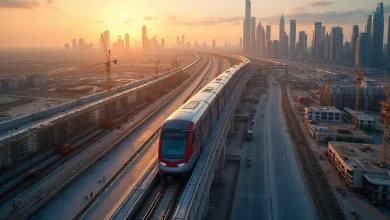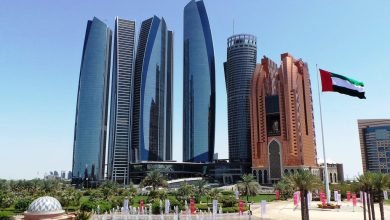
The Future of Freehold Property: How New Zoning Laws are Shaping the UAE Real Estate Market
The UAE’s real estate market is undergoing significant changes, with new zoning laws set to reshape the landscape of freehold property ownership. These legislative updates are poised to have far-reaching consequences for developers, investors, and the overall trajectory of Dubai’s real estate sector.
In this article, we will delve into the intricacies of these new zoning laws and explore their potential impact on various stakeholders in the freehold property market. We will also examine the future outlook for real estate investment in the UAE, considering the evolving legal framework and the distinctions between freehold and leasehold ownership.
Overview of the New Zoning Laws in the UAE
The UAE has introduced new zoning laws in 2023 to promote sustainable development and urban growth. Law No. 16 of 2023, titled “Concerning Urban Planning in the Emirate of Dubai,” establishes a series of urban planning and construction standards to ensure Dubai’s real estate expansion aligns with sustainability principles. The law aims to:
- Develop an integrated and effective urban planning scheme
- Encourage investment and sustainable development
- Improve quality of life
- Ensure safety and security
- Establish governance in the urban planning sector
- Improve efficiency of planning and implementation
- Regulate urban planning work
- Preserve the environment and natural resources
- Contribute to the development of an Environmental Impact Assessment system
The Supreme Urban Planning Committee (SUPC) is formed to develop the general policy of urban planning, approve the Structure Plan, and supervise its implementation. The Dubai Municipality (DM) is exclusively in charge of regulating the urban planning sector in the Emirate, with functions including preparing the Structure Plan and Framework Plans, ensuring progress of urban development, and issuing Planning Permits.
The Structure Plan, deemed the Dubai 2040 Urban Master Plan approved on 13 March 2021, is the comprehensive strategic document governing the urban planning sector in the Emirate. The DM will review the Structure Plan at least once every ten years, and the DM and Concerned Entities will review the Framework Plans at least once every five years. Amendments to the Structure Plan or Framework Plans require approval by the SUPC and ratification by the Chairman of the Executive Council.
Impact on Real Estate Developers
The new zoning laws in the UAE have a significant impact on real estate developers, as they must navigate a complex set of regulations to ensure compliance and maximize their investment potential. Some key considerations for developers include:
- Understanding local zoning regulations: Developers must thoroughly research and comprehend the zoning laws specific to their project’s location, as these laws dictate permissible land uses, building design parameters, and proximity to roads.
- Consulting zoning authorities: Engaging with local officials and zoning authorities is crucial for developers to ensure their projects align with the established regulations. This consultation process can help developers obtain necessary permits, variances, and approvals.
- Collaborating with professionals: Working with experienced architects, engineers, and legal experts who specialize in zoning compliance can help developers navigate the complexities of the UAE’s zoning laws and avoid potential pitfalls.
The introduction of long-term residency visas and favorable tax policies has spurred the development of luxury properties and mega-projects, such as the Palm Jumeirah and the Burj Khalifa. However, proposed modifications to these developments must comply with Dubai’s zoning laws, as non-compliance can result in fines or demolition orders.
Real estate laws and regulations in Dubai provide legal protection and flexibility for real estate development, attracting both local and global investments. As the UAE continues to emphasize sustainability in real estate, developers will need to incorporate eco-friendly designs, green technologies, and energy-efficient practices into their projects. Additionally, the demand for tech-infused smart cities, innovative office spaces, and smart homes will shape the future urban landscape, requiring developers to adapt their strategies accordingly.
Consequences for Investors
The new zoning laws in the UAE have significant consequences for investors in the freehold property market. The introduction of long-term residency visas and favorable tax policies has attracted foreign investors, expatriates, and skilled workers who are potential homebuyers [10]. However, investors must navigate the complexities of these laws to make informed decisions and maximize their returns.
Key considerations for investors include:
- Understanding the impact of zoning on property values: Changes in land use can significantly affect a property’s market value. Investors must comprehend how zoning and land use policies influence supply-demand dynamics and property prices.
- Compliance with zoning regulations: Non-compliance with zoning laws can lead to penalties, legal issues, and limitations on property use. Investors should ensure their properties adhere to the established regulations to avoid potential pitfalls.
- Evaluating investment opportunities: The UAE real estate market is expected to reach a valuation of 0.71 trillion USD by 2024, with consistent annual growth projected. Investors should assess the potential for high rental yields, long-term capital appreciation, and the appeal of luxury properties in sought-after areas like Palm Jumeirah.
Despite the challenges posed by the evolving legal landscape, the UAE real estate market remains attractive to investors due to its growing status as a global business hub, luxury living destination, and the influx of high-net-worth individuals. By staying informed about the latest zoning laws, market trends, and investment opportunities, investors can navigate the complexities of the freehold property market and capitalize on the potential for substantial returns in the UAE’s dynamic real estate sector.
Future Outlook for Real Estate in the UAE
The future of the UAE’s real estate market is shaped by the interplay between zoning regulations, property values, and the interests of various stakeholders [16]. As the market adapts to global trends such as remote work, wellness-focused design, and inclusive urban planning, it is poised to remain at the forefront of innovation.
Despite the complexities introduced by the new zoning laws, the UAE real estate market is expected to remain robust in 2024, with record-breaking sales and diverse housing options. Key factors contributing to this growth include:
- Consistent demand driven by significant population growth, particularly in urban hubs like Dubai and Abu Dhabi.
- Advanced digital solutions that enhance accessibility and efficiency for global home buyers.
- Extended validity of long-term visas and zero tax requirements, attracting a diverse range of investors.
- Regulations that moderate supply and demand, ensuring stability and safeguarding the interests of buyers, developers, and financial institutions.
Beyond Dubai, other emirates such as Abu Dhabi, Sharjah, and Ras Al Khaimah are emerging as growth markets, offering affordable housing, picturesque views, cultural diversity, and top-notch amenities. As the UAE continues to navigate the complexities of the new zoning laws, legal consultants specializing in real estate will play a crucial role in ensuring compliance and resolving conflicts.
The UAE’s real estate market is undergoing a significant transformation, driven by the introduction of new zoning laws that prioritize sustainable development, urban growth, and the interests of various stakeholders. As developers adapt to these regulations and investors navigate the evolving landscape, the market is poised for robust growth, with record-breaking sales and diverse housing options expected in 2024.
The future of freehold property in the UAE is bright, as the nation continues to attract global investors, expatriates, and skilled workers seeking luxury living and lucrative investment opportunities. By staying informed about the latest zoning laws, market trends, and emerging growth markets across the emirates, stakeholders can capitalize on the potential for substantial returns in this dynamic and innovative real estate sector.






